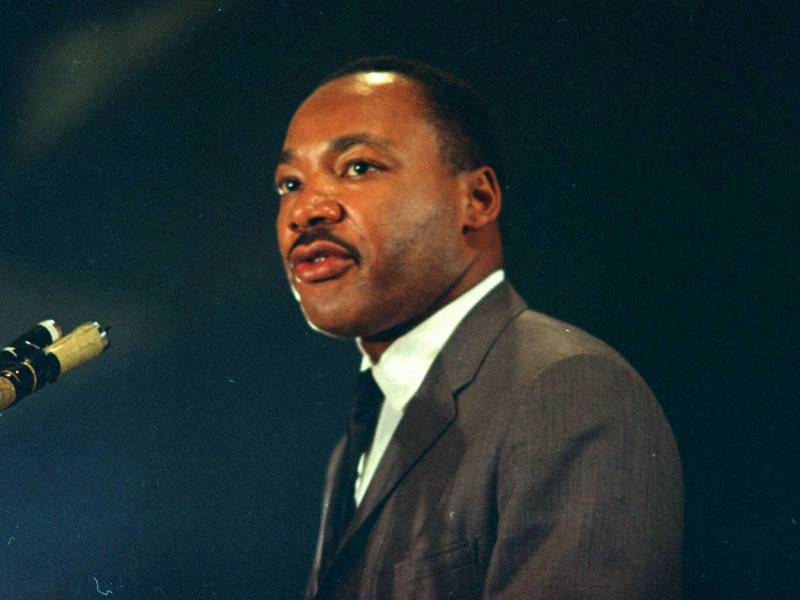Martin Luther King Jr. Day is approaching quickly — Monday, Jan. 15 — and this year, the federal holiday falls on the actual birthday of the celebrated civil rights leader who was assassinated more than half a century ago.
As the United States commemorates the Rev. Martin Luther King Jr.’s legacy, here are a few things to know about the holiday honoring the slain activist and his fight against inequality and racial injustice.
From subversive to hero
This year marks 56 years since the activist was assassinated.
Today, King is widely lauded as a hero who led a nonviolent crusade against racist segregation policies and horrendous brutality against Black people. But at the time, his views were considered quite radical by much of white America, including the government. (He was the subject of several FBI surveillance operations designed to collect subversive material on King.)
The Pew Research Center found that by 1966 — two years after he’d received the Nobel Peace Prize — 63% of Americans had an unfavorable opinion of King, “including 44% who viewed him highly unfavorably.” Today, 81% of American adults say he had a positive impact on the country.
